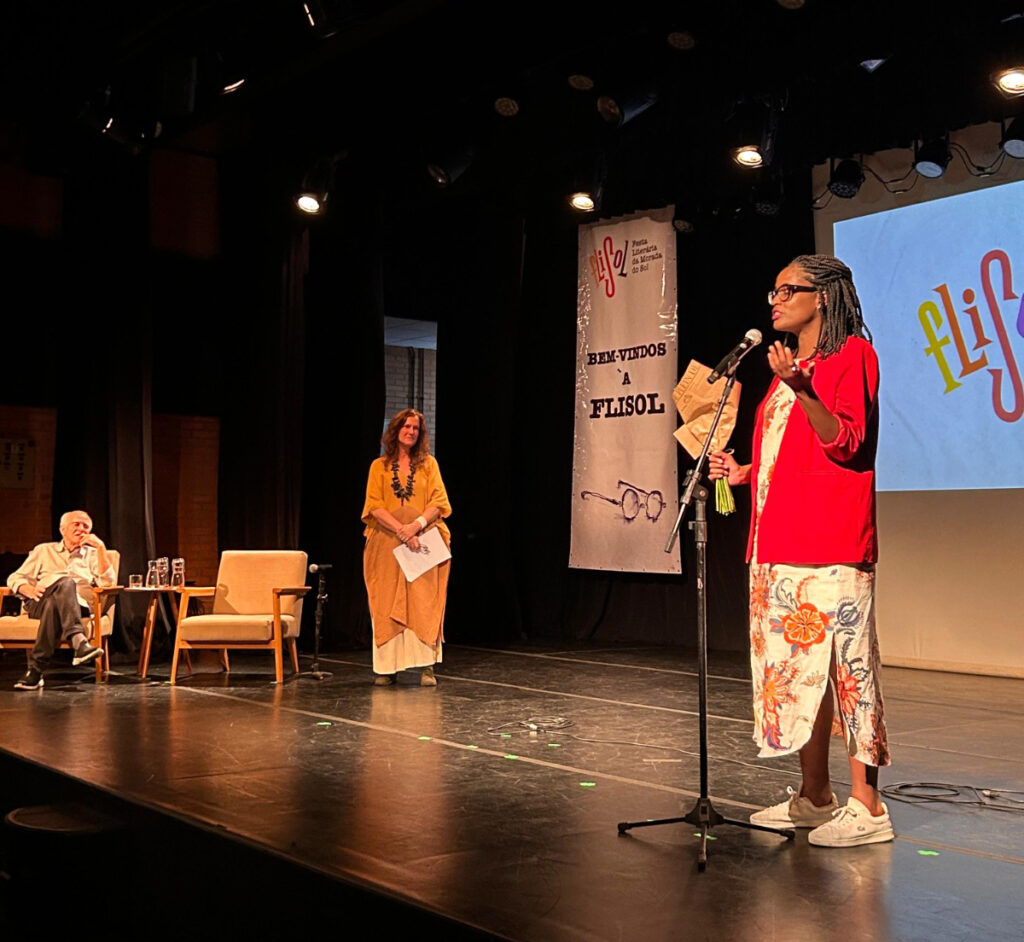A Tribute to Ignácio de Loyola Brandão

The writer masterfully teaches us the art of sharing memories
I was in Araraquara last Tuesday, the 20th, to attend the launch event of Flisol 2025, the Literary Festival of the Morada do Sol. The event kicks off a series of tributes to celebrate the 60-year career of Ignácio de Loyola Brandão, our rare gem.
At 88 years old, Ignácio is on a journey of well-deserved honors, which, I confess, makes me deeply proud to call him a friend. Whenever we meet — and fortunately, I’ve been able to do so a few times each year — we laugh a lot at his witty remarks, unusual comparisons, and elephantine memory.
The first time I saw him was at my induction into the Paulista Academy of Letters, in September 2022, where he holds the 37th chair. That night was very special to me, surrounded by dear people — but above all, because I found myself often imagining the joy and pride my father and mother, who passed away in the early 2000s, would have felt. There I was, wrapped in the sash of chair 28, diploma in hand. Me, the one who “started late” and yet became the youngest immortal in the house, occupying the chair once held by the unforgettable Lygia Fagundes Telles.
It may seem unusual to bring up such personal memories at a moment like this — but that is precisely what Ignácio so masterfully teaches us to do: to share memories. He, who once watched the elite club from the outside and took so long to be recognized, is now one of the immortals of Brazilian literature and has secured his rightful place in the history of the city.
The energy that night was like something out of a movie. Márcia, his life partner, was in the audience, alongside granddaughter Antônia and the whole family. Local authorities, intellectuals, writers, students, artists, and workers from various sectors were also present. The Sesc theater quickly filled up.
It was truly an honor to be called by him to walk arm in arm as we entered the stage on such a special date. I had the opportunity to share a few brief but sincere words in homage to his brilliance, the vastness of his work, and the generosity with which he interacts with younger writers.
We sat on stage to watch a viola caipira* performance by members of the Bela Vista settlement — historic in the region — followed by the public conferral of the honorary doctorate from Unesp, the institution’s highest accolade. The honor had been granted in 2020, during the height of the pandemic, without an in-person ceremony. This week, that was finally made right. My friend is not only illustrious — he is now a Doctor.
I felt grateful to be there witnessing it. Ignácio shared unusual stories — some hilarious, like the time he scribbled mathematical nonsense on the board during an oral exam. He was saved by a professor who, being a reader of his texts, saw in that embarrassment the brilliance of a dreamer’s soul.
Alongside his daughter, singer Rita Gullo, he delivered a truly unique performance. I say performance because of the creative nature of the literary event: Ignácio told stories, and Rita wove them together with brilliantly interpreted songs. It was a sensorial, deep, curious, fun, and delicate journey.
It is so beautiful to see an elder celebrated this way. For me, as a woman of Candomblé, exalting seniority is a blessing. And I feel genuinely happy to see my friend so honored.
Here, I must salute Bernardete Passos, director of Flisol. One special thing about Flisol is that the honored author of the year is chosen by Ignácio, who is the festival’s permanent patron. He chose me in 2024 — and so I gave a second speech as the sash was passed — and this year’s honoree will be writer Itamar Vieira Júnior, author of Torto Arado.
In this way, Ignácio, who shone as a journalist, columnist, editor, and author of over 45 books, shows himself — thanks to Flisol and Bernardete — to be a first-rate literary curator, modesty aside.
Bernardete has conceived a very special festival, one that transcends political administrations and is instrumental in establishing this cultural policy in Araraquara — an inspiration for many others across the country. Throughout the year, public school students read the works of the honored author. The festival also organizes an exhibition about the person, and the entire city becomes involved.
Once again, I congratulate Flisol on a beautiful evening. The literary festival is always held in the first week of November and this year promises a memorable program.
And to my dear Ignácio, I wish that your friend Exu — the orixá I so often see in you — continues to open your paths at the crossroads of the world.
Originally published in the Folha de S.Paulo column.
* The viola caipira is a traditional Brazilian ten-string guitar, typically played in rural folk music. It has a bright, resonant sound and is central to musical styles like moda de viola and toadas, which are associated with the countryside and oral storytelling.)
Related articles
May 20, 2025
Professor Djamila Ribeiro on Brazilian Public TV: “Place of speech is not a restriction, it’s an invitation to plural dialogue”
December 21, 2022
Djamila Ribeiro launches new website
December 21, 2022
Djamila Ribeiro is on the cover of Forbes Life